Christoph Schlüren (nsnbc) : On this very day, on 24 January 2018, Vienna celebrates the 100th birthday of the distinguished composer Gottfried von Einem. He won worldwide glory with the première of his first opera ’Danton’s Tod’ (The Death of Danton) after Georg Büchner in Salzburg in 1947, the first opera première ever given at the Salzburger Festspiele.
For some two decades ’Danton’s Tod’ was the most successful opera written after World War II, and there were more great successes to come: the Kafka opera ’Der Prozess’ (The Trial) in the early 1950s, ’Der Zerrissene’ (The Tormented) after Nestroy in the 1960s, Dürrenmatt’s ’Der Besuch der alten Dame’ (The Visit), ’Kabale und Liebe’ (Intrigue and Love) after Schiller in the 1970s – there probably is no other post-war opera composer who became as widely popular as Einem. Apart from the infallible instinct for theatrical effectiveness this is music written for every listener, it is neither avantgarde nor traditionalist but it is always essential, ingenious, in absolute presentness. So far, so good concerning opera: It is no wonder that these glamorous successes overshadowed the rest of Einem’s rich œuvre.
I must confess that I find all these operas extremely interesting concerning the dramaturgical realisation but I prefer Einem the composer of pure music. Einem’s instrumental works – for orchestra, for chamber forces, for soloists – and his songs are finally the more substantial but much lesser known part of his œuvre.
In these works he reveals himself as one of the most many-faceted and continuously unpredictable masters of the 20th century. On the one hand you get the feeling that the whole history of music is present – in a hidden manner! – in everything he writes, and he can just relate to any imaginary fragment taken from any imaginary context and incorporate it into his actual flow of invention. On the other hand as soon as you have become familiar with the extreme manifoldness of his tonal language you realize that all these phenomena are always bound to a common denominator that cannot be explained in a rational way. Correlation is everywhere in his music and interconnects even the most unconventional and almost subversive manifestations of contrast and capriciousness. Einem’s music is always rubbing shoulders with sentimentality but never gets lost in the trap of ”stay awhile, you are so beautiful”. This is fearless music by its innermost nature that doesn’t ever have to demonstrate its fearlessness, and in this respect as well as in its absolute presentness and constant inspiration it is very close to the spirit of Mozart. If you are searching for the novelty you should have no expectations!
Gottfried von Einem was born in Bern on 18 January 1918. He grew up in the Schleswig-Holstein countryside near Plön, surrounded by servants and private tutors but most of the time without his parents. His mother was a witty cosmopolitan lady who maintained priviledged relationships with high finance, politicians, artists, and the intelligentsia. She was a masteress in doing resplendent business of many kinds but never spoke about it. And she had an incredible talent in bringing people together – a talent Gottfried inherited from her. His father was not his father. In 1938 Gottfried was engaged as répétiteur at the Prussian State Theater in Berlin under the tutelage of Heinz Tietjen, and suddenly he was arrested by the Gestapo – they suspected his mother of espionage. One of the first things the Gestapo officer told him was that his biological father was the late Hungarian count László Hunyady whom he had seen twice when he was a little boy. László Hunyady traveled to Egypt with his mother in 1927. They went big-game hunting and the count met his death in a lion’s mouth. Gottfried’s mother, Gerta-Luise von Einem, was kept in prison for about a year in 1938-39, and at the same time she was sentenced to death in absentia in Paris as a double agent. The tabloids ”reported” about ”Mata Hari II”. After the war she was immediately arrested and deported to France and stayed in prison for two years before she was finally acquitted.
In 1941 Gottfried made his personal acquaintance with the renowned composer Boris Blacher, a ”quarterjew” who loved jazz, groovy rhythms, sparse structures, lively – and why not entertaining? – undercurrents of musical culture. Blacher had become a persona non grata in the official system, his music was only rarely performed, and he was not allowed to teach anymore. Einem became Blacher’s private student for two years and learnt everything from him. Blacher gave him the fundamental orientation not only in music but in life in general – technically, mentally, politically, ethically. In 1943 Einem had his breakthrough as an orchestral composer. His craft was fully developed. One could still detect a kind of remarkable influence from Blacher’s music but it only took him a few works more to become fully conscious of his true inner voice. These were turbulent times, and Blacher put him in touch with members of the resistance movement. Einem made friends with the Jewish musician Konrad Latte and saved his life by first lending him his own identity papers and then – in a truly courageous turn – helping him to get a new identity and apply allegedly ”renewed” membership in the Reichsmusikkammer. Einem was therefore posthumously awarded the title ”Righteous among the Nations” at Israel’s Yad Vashem.
After the war Einem became official consultant of the board of directors of the Salzburger Festspiele. He was responsible for some of the repertoire choices of the late Wilhelm Furtwängler, and without his influence the maestro’s legendary performance of Verdi’s ’Othello’ would have never taken place. Einem had ambitious goals and wanted to make Salzburg a Mecca of contemporary music but with his ideas he got in Karajan’s way who wanted to make Salzburg the centre of commercialist power and vain self-staging as the unsurpassed “genius of interpretation“. Einem demonstrated persistence. He wanted to bring Bertolt Brecht to Salzburg. Brecht had returned from US emigration where he had become a victim of McCarthy’s obsessive anti-communist witch hunt and now lived a kind of ”interim life” in Switzerland. He had no passport. Einem used all his good relations and succeeded: Brecht got Austrian citizenship. Einem wanted to make Brecht Salzburg’s house poet. He even had the sacrilegious plan to replace Hofmannsthal’s ’Jedermann’ by a new play by Brecht: ’Ein Salzburger Totentanz’ (A Salzburgian Dance of Death). But then the press got word of it and the Brecht-Einem affair made the rounds. Einem was accused as a communist sympathizer and thrown out of the festival’s board of directors. One year later he had his triumph with the opera ’Danton’s Tod’ but the Salzburg battle was lost. He moved to Vienna and the Austrian capital became his central sphere of action. But he never acted for himself exclusively, he always had his friends in his traveller’s luggage, and wherever he got a commission for a new work he took care to acquire another commission for at least one of his composer friends – Blacher, Rudolf Wagner-Régeny, Heimo Erbse, Werner Egk, Carl Orff, the list is long…
He got to know his first wife Lianne von Bismarck in the class of Boris Blacher in 1941. In 1962 Lianne died, and in 1966 Gottfried von Einem married the poet Lotte Ingrisch. They enjoyed three decades in full creative bloom. Einem died in Lower Austria near the Czech border in 1996. His widow lives in Vienna. To be precise, she always lived between the worlds. She is the author of a ’Travel Guide into the Beyond’, and she wrote the libretti of her late husband’s last two operas. The first of these was ’Jesu Hochzeit’ (The Wedding of Jesus) and provoked a scandal due to a wilfully arranged campaign of disinformation organized by the Catholic church. Theologians were not able to find any contradictions with the essence of the Gospel but myriads of old women stood in front of the theaters and railed against the ”work of the devil”. The music in its intimate subtlety was completely unsuited for a scandal. But the words of the 15th scene have not lost one jot of their power, of their meaning and timeless up-to-dateness:
”O Lord, we look into the passage of time and we are shocked. They will hate in the name of love. They will collect wealth in the name of poverty and wage bloody wars in the name of peace. They will lit pyres in the name of truth and fill the dungeons in the name of freedom. They will rule in the name of humbleness and murder in the name of life. Erase them, o Lord, condemn them to ’non-createdness’!”
If you want to listen to Gottfried von Einem’s best music available on record (all cds have been released on the label Orfeo distributed worldwide by Naxos) you should pick the old Matacic recording of his ’Bruckner Dialog’. This work is a true wonder. Einem took some fragmentary passages from the unfinished final movement of Anton Bruckner’s last symphony, the Ninth, and put them into a completely alien context. But this is no exercise in collage aesthetics, on the contrary, a dialogue emerges. Einem speaks with Bruckner, and Bruckner responds; there is no moment of self-denying on both sides but there is correlation between the different realities of two individuals. This is a fantastic piece, one of a kind in every respect. Or listen to the filigree world of the Piano Concerto played by the eminent Russian pianist Konstantin Lifschitz, to the short and compact Mozart homage ’Wandlungen’ (Transformations), or to any of the five wonderful string quartets flawlessly played by the Viennese Arcis Quartet. In the Fifth Quartet Franz Schubert makes an appearance that will strike any sensitive listener. Einem prepares the ground, and then there is this song beyond space and time, overflowing of tears of joy and sadness at the same eternal moment. Please don’t ask whether this is real or not. Your fucking intellect will never know.
Christoph Schlüren (nsnbc) – 24.01.2018 – Christoph Schlüren, from Munich in Germany, works as conductor (Deutsche Kammerakademie Neuss, Symphonia Momentum, St Michel Strings Mikkeli) and musical mentor for chamber groups and soloists as well. Christoph Schlüren has more than 20 years experience as journalist, music author, music editor and program adviser. Artistic director of Aldilà Records. Particular interest in never-ending discovery of substantial unknown music in any kind of style and genre. Studied with Sergiu Celibidache from 1981 to 1996. A basic book on musical phenomenology will be released soon.
Source Article from https://nsnbc.me/2018/01/24/condemn-them-to-non-createdness-a-vignette-to-gottfried-von-einems-100th-anniversary/
Related posts:
Views: 0
 RSS Feed
RSS Feed

















 January 24th, 2018
January 24th, 2018  Awake Goy
Awake Goy 










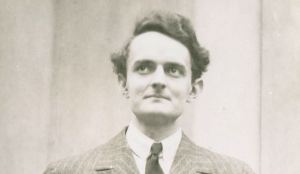
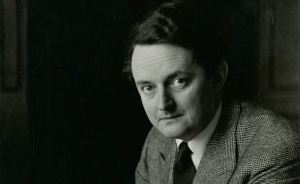
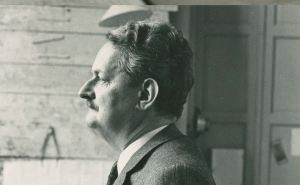
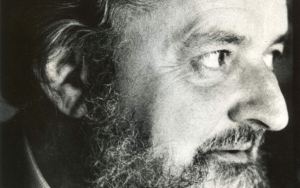
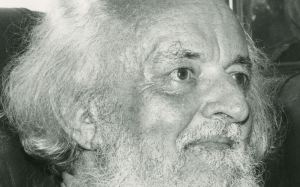
 Posted in
Posted in  Tags:
Tags: 
















